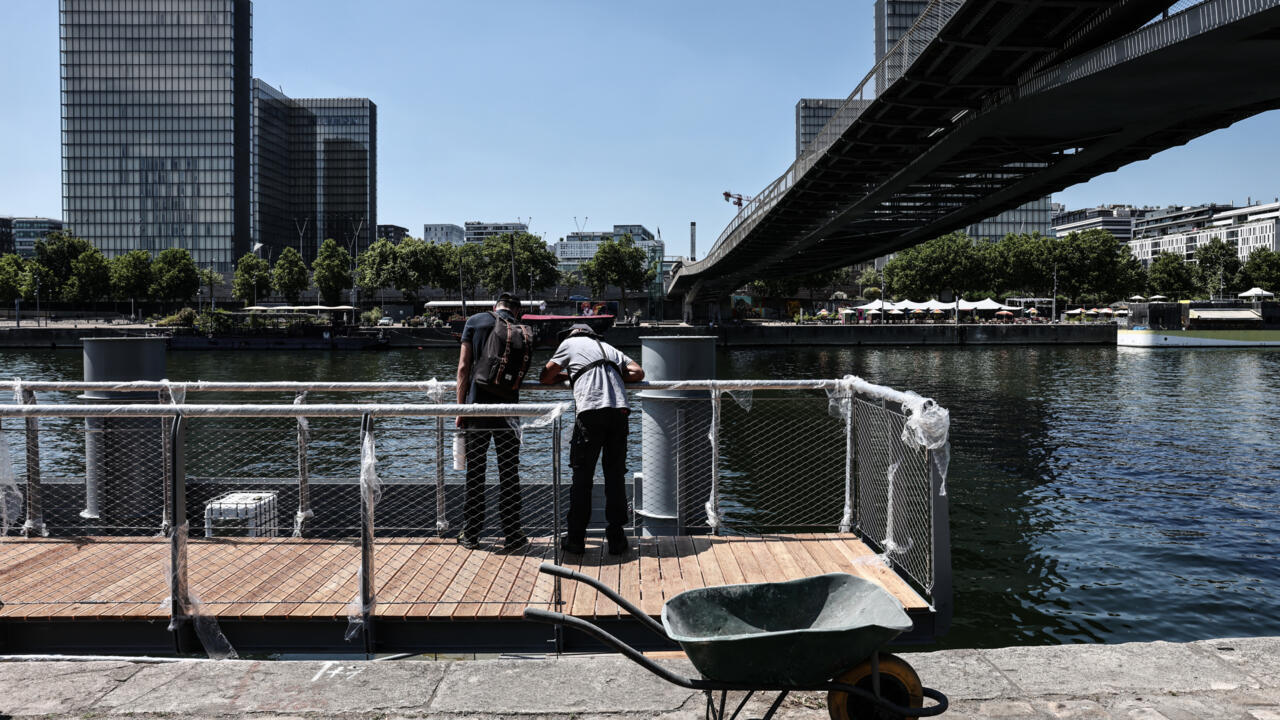PRESS REVIEW – Friday, July 4: We look at reactions to US President Donald Trump's "Big, Beautiful Bill", which he will sign today. Also: Russia recognises the Taliban as Afghanistan's government, becoming the first country to do so. Tributes in the football world pour in for Diogo Jota, a star of Liverpool FC who has died in a car crash alongside his brother, André Silva. Finally: a new study shows orcas offering gifts to humans – but scientists are puzzled about what their intentions really are.
Papers are reacting to Trump's "Big, Beautiful Bill", which he's set to sign this Friday, July 4, which is US Independence Day. The bill will cut major welfare programmes and add trillions of dollars to the national debt. The Washington Post calls it one of the most consequential and expensive economic legacies in modern American presidential history. The Wall Street Journal takes us through how the bill managed to pass the finish line. Trump used his executive authority to made deals to avoid the bill heading back to the Senate. He agreed to explore new tariffs on parts used in wind turbines in a bid to placate conservative Republicans who wanted greater limits on renewable energies. The Journal notes that his "vague promises and cajoling" paid off, with the House passing the bill on Thursday. It also underscores his iron grip on the Republican Party.
In the conservative press, the Washington Times is hailing "big, beautiful wins." The sweeping tax cut legislation caps a "summer of victories" for Trump, it says. The National Review calls the bill's passage a significant conservative policy win that will make permanent the "meat of the Tax Cuts and Jobs Act of 2017", in reference to a bill passed during Trump's first term in office. The magazine celebrates a provision defunding planned parenthood from Medicaid but laments that it's pared back to just a one-year restriction. It does say, however, that the failure to get spending under control will come back to "haunt any Republican who wants to be remembered for helping bring our debt under control".
In other news, Russia has acknowledged the Taliban as the government of Afghanistan, something a lot of the press is reporting on. The New York Times notes that Russia has become the first country to recognise the Taliban as Afghanistan's government, four years after the group seized control of the country. Russia's recognition is a "significant victory" for the Taliban, the paper says, reminding us that their draconian restrictions on women have made the country a pariah state. The Taliban moved to eradicate opium production in a bid to entice foreign partners, but its refusal on women's rights means it has stayed diplomatically isolated. Last year, China and India appeared to soften towards Afghanistan.
The football world is mourning the loss of Diogo Jota, a Portuguese player and Liverpool forward. The 28-year-old and his brother André Silva were killed when the Lamborghini they were travelling in veered off the road in Santander, Spain. Jota was heading back for Liverpool's pre-season training. A Bola, the Portuguese sports paper, goes with a sober black and white photo of Diogo and André and their respective date of births. You’ll never walk alone, reads the title in English – a nod to Liverpool FC's slogan. "Forever our number 20", the Liverpool Echo says in an edition featuring several pages dedicated to the footballer. The Guardian also focuses on the terrible accident on its front page. The pair were driving to Santander to catch a ferry back to England because Jota was advised against flying back to England after recent surgery. He had just recently married his partner and was a father of three.
Finally, a new study has shown wild orcas appearing to present humans with gifts of food, but it's unclear if this is a gift or an attempt at manipulating us. The Times of London reports on the study which notes 34 examples of this behaviour in six different orca populations, from Norway to New Zealand. The orcas approached people in boats, in the water or on shore, and brought fish, bits of whale, birds, seaweed and even a turtle. They then usually hovered around waiting to see what would happen. In a few cases, the food was picked up, inspected and tossed back. The whales then retrieved and returned the gift. The results were published in a psychology journal and offer some theories about what this behaviour could mean: that the orcas were extending a flipper of friendship and nothing more. Or a darker, "Machiavellian" explanation: it was an attempt to attract a species of prey – us – and kill us but not eat us. With the word killer in their names, you'd be forgiven for being a bit suspicious!
You can catch our press review every morning on France 24 at 7:20am and 9:20am (Paris time), from Monday to Friday.











 English (US) ·
English (US) ·